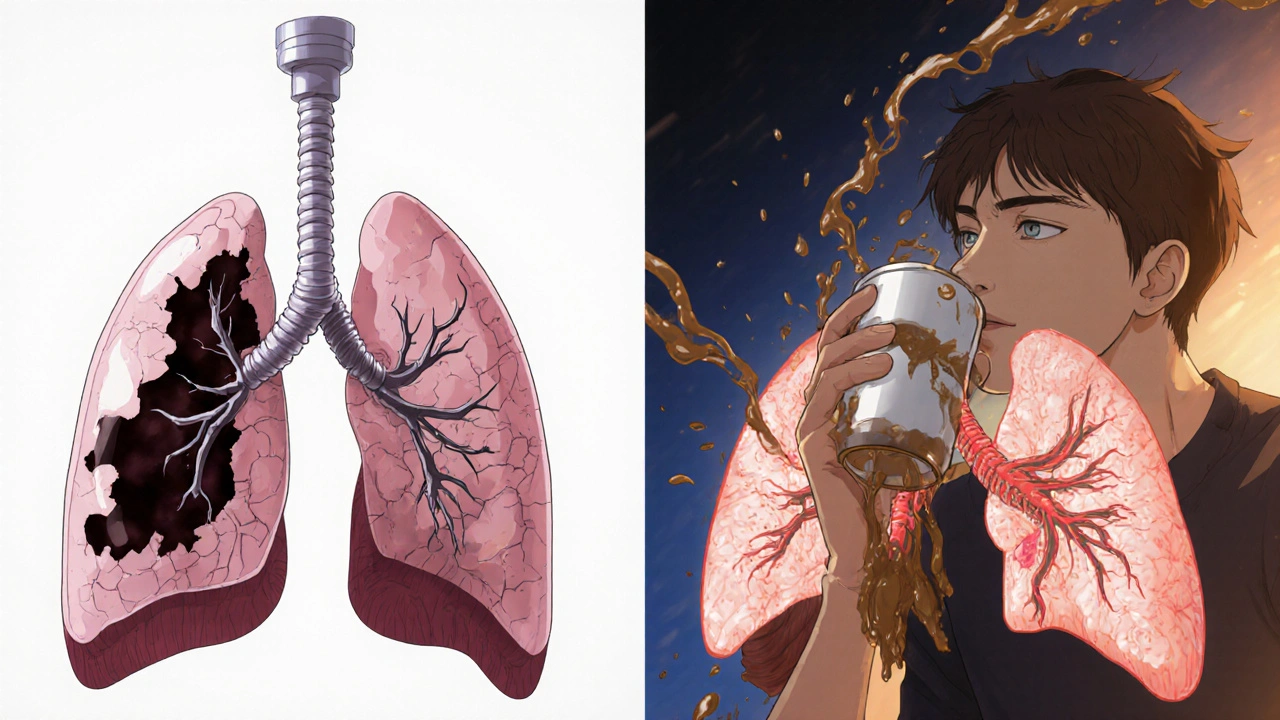COPD: Understanding Causes, Treatments, and Daily Management
When you have COPD, Chronic Obstructive Pulmonary Disease is a progressive lung condition that makes breathing difficult, often due to long-term exposure to irritants like cigarette smoke or air pollution. Also known as chronic bronchitis or emphysema, it’s not just a smoker’s disease—it’s a daily battle for air that millions live with, often without knowing how to control it.
COPD doesn’t happen overnight, but it gets worse fast if ignored. The main tools for managing it? Inhalers. Formoterol Budesonide, a combination inhaler that opens airways and reduces inflammation, is one of the most prescribed options for steady control. But it’s not the only one. People switch between brands like Symbicort Turbuhaler, Ventolin, and others based on cost, ease of use, and how well their body responds. And here’s the thing: many patients end up taking separate generic pills instead of combo inhalers to save money, but that can backfire if timing or dosing gets messy. This is where things get risky—missing a dose, using the wrong device, or storing inhalers in a humid bathroom can make them useless.
Managing COPD isn’t just about meds. It’s about how you live. People with COPD often struggle with simple tasks like walking to the mailbox or climbing stairs. Oxygen therapy, pulmonary rehab, and even breathing exercises can make a real difference. And while you can’t reverse the damage, you can slow it down. Quitting smoking is the single most effective step—but even if you’ve smoked for decades, it’s never too late to start. Diet matters too. A balanced diet helps reduce inflammation, and staying hydrated keeps mucus thinner and easier to clear.
Many don’t realize how often COPD overlaps with other conditions. Heart problems, anxiety, and even acid reflux can make breathing worse. Some medications, like certain blood pressure pills, might interact in ways you wouldn’t expect. And if you’ve ever had a bad reaction to an antibiotic or noticed your mood change after starting a new drug, that’s worth tracking—COPD patients often take multiple meds at once, increasing the chance of dangerous interactions through enzymes like CYP450.
What you’ll find below isn’t just theory. These are real stories and practical guides from people living with COPD, their caregivers, and the doctors who treat them. You’ll see how to pick the right inhaler, how to avoid common storage mistakes that ruin your meds, what to pack in an emergency go-bag if your power goes out or you need to evacuate, and why some people choose separate pills over fixed-dose combos. There’s no fluff here—just what works, what doesn’t, and what you need to know before your next doctor visit.
Chronic Bronchitis vs. Emphysema: Key Differences in COPD and How They Affect Treatment
Chronic bronchitis and emphysema are two distinct forms of COPD with different symptoms, causes, and treatments. Understanding which one affects you can lead to better care and fewer hospital visits.

